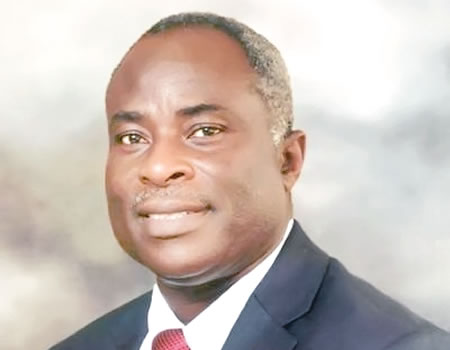CHIEF Medical Director (CMD), University College Hospital (UCH), Ibadan, Professor Jesse Otegbayo, has said that it would be difficult for the institution to investigate the allegation that a patient brought fake thyroid treatment drugs from the hospital.
He stated that the complaint, as made on Instagram, a social media platform, through a handle, @ThetundeT, was not detailed and lacked the information required for its investigation.
The Instagram handle had posted on February 18 thus: “We found that the drugs we were buying for my wife’s thyroid treatment were fake. Fake bro! We dey treat illness over 2 years like mumu. Guess what? Na UCH Ibadan Pharmacy we dey buy from. There is no hope, walahi.”
Speaking on the incident, Otegbayo said, “How does one investigate this? No mention of the name of the drug taken for two years! Where is the copy of the prescription or leftover of the drug made available?
“The NAFDAC report that confirmed that it is a fake one is not available. In the alternative, the complainant needs to let us know how he confirmed the fake drug.
“UCH buys from standard, notable pharmaceutical companies. Some facts are needed for the investigation. The name of the drug was not mentioned, so it is difficult. We will reach out to him on his Twitter handle if he will respond.”
Chairman, Pharmaceutical Society of Nigeria, Oyo State, Colonel Segun Ajanaku (retd), in a reaction, declared that fake pharmaceutical products are a global phenomenon and, as such, a genuine pharmaceutical importer may fall victim to these cartels and bring in fake products unknowingly.
According to him, such pharmaceutical importers, thinking that they are genuine products, would not know until the distribution of such products got to the consumers and the resultant effects on the patients started manifesting, and by this time, many lives would have been negatively impacted.
He stated, “The truth of the matter is that buying a drug from UCH does not mean that it will be fake-free. The reason is that UCH buys from their suppliers too; therefore, they assume that whatever their suppliers give should be genuine and authentic.
“The suppliers could have bought from either the importer or manufacturer, which makes drug traceability very easy and key in the prevention of fake and counterfeit drug products; however, this drug distribution process may have been distorted along the line by going to purchase them from markets like Agbeni and Idumota markets, where you may not be able to trace the sellers.”
Ajanaku said it is the responsibility of the patient taking a drug to report whether a drug is working well for his or her condition.
“When you take a drug for a maximum of a month, you should notice the effect, whether negative or positive. You are expected to go for a review, but when you get to the clinician who ought to review your case and you begin to tell him or her that you are feeling good, what do you expect the clinician to do other than to tell you to continue with your medication?
“So, therefore, people must get involved in their treatment by always telling the truth to the clinician. We must educate ourselves not to be afraid of our doctor or pharmacist to tell him the way we are feeling about our treatment.
“Of course, the issue of fake and counterfeit drugs will need a multi-dimensional approach to resolving it.”
A medical expert who prefers not to be identified, also said the patient needs to go back to discuss her situation with her doctor rather than assume that the medication is fake and not working, given that it takes two to three years to get some thyroid disorders properly treated.
“The ideal thing is for the patient to come and discuss with her doctor so that they can figure out exactly what the problem is, rather than take to social media to say the drug is fake; you must do an analysis of the medications.
“It is wrong to go to social media and say the drug is a fake one, and you end up misleading thousands of people not to use their drugs. It is not right.
“Sometimes, these patients don’t use their drugs regularly because it is a long-term treatment, and they will now feel that the drug does not work. Let her be sincere enough to go back to see her doctor.”
Read Also: Declare state of emergency on drug abuse, Reps tell FG
